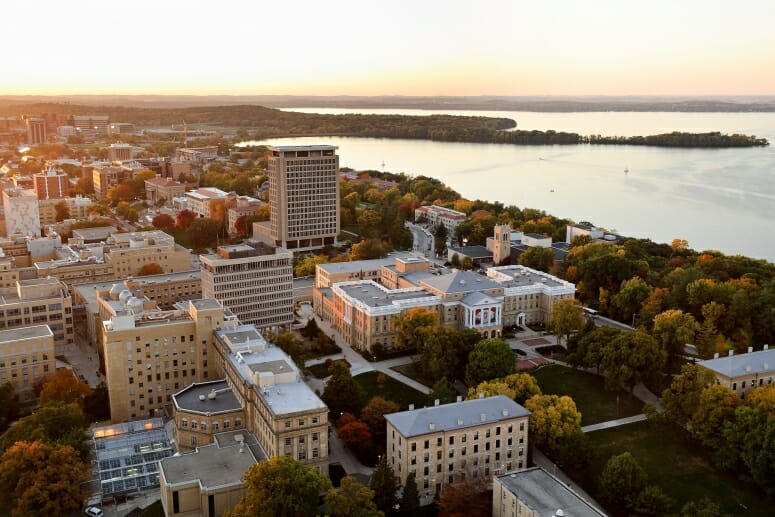01 Feb UW retains top 10 national research ranking

Bascom Hall is pictured in an aerial view of the University of Wisconsin–Madison campus. PHOTO: JEFF MILLER
The National Science Foundation has released its 2019 fiscal year Higher Education Research and Development Survey, or HERD, data, showing that the University of Wisconsin–Madison ranked 8th place in the national research rankings for public and private universities. UW–Madison also ranked 8th in the last survey covering the 2018 fiscal year.
Among public universities, UW–Madison ranked 6th, the same ranking as in fiscal year 2018.
Data on UW–Madison’s 2019 expenditures for research show the university increased its annual expenditures over the previous year, reporting nearly $1.3 billion in annual expenditures for research across all fields, about half of which comes from federal awards. That is an increase of nearly $92 million from fiscal year 2018.
The HERD survey is the primary source of information on research and development expenditures at American universities and colleges. Tabulating expenditures is one way to measure academic research activity.
The survey collects information on R&D expenditures by field of research and source of funds, and also gathers information on types of research expenses and number of R&D personnel. The survey is an annual census of institutions that spent at least $150,000 on separately budgeted research and development during the fiscal year.
In fiscal year 2019, more than 900 universities responded to the survey.
“UW–Madison is committed to sustaining its position as an innovation leader, as is evident by our investment in growing our faculty and launching new research initiatives to seed projects so they are more competitive for extramural funding,” says Steve Ackerman, vice chancellor for research and graduate education. “I’m especially proud that our campus research community provides a backbone to the Wisconsin Idea in areas such as timely and critical public health response. This is demonstrated by the university’s research related to the COVID-19 pandemic, and also through our efforts to engage in fundamental research to ensure significant continuing advances in the arts, education, STEM and the social sciences.”



